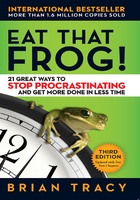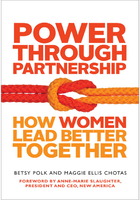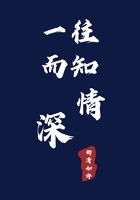Peter M. Senge
Few even well-informed business leaders seem to recognize Visa as the largest business organization in the world, despite a turnover that is some 10 times that of Wal-Mart and a market value that is, conservatively speaking, more than double that of General Electric. I have often wondered why this is so. How could the world's largest business also be one of the business world's best kept secrets? It is certainly not that its product is little known, nor that it is the leader of an obscure industry. There are few companies that could claim that one-sixth of the world's people were its customers last year! Yet, over the past decade, there have been well over a thousand feature articles in Business Week, Fortune, and Forbes on Microsoft, over 350 on GE, and about 35 on Visa.
I have come to conclude that the reasons for Visa's relative invisibility are as important as those for its success. There are virtually no feature articles on Visa International's CEO, a favorite theme of many business periodicals, because Visa's CEO makes neither the astronomical compensation nor wields the unilateral decision-making power of most CEOs—by design. There are no feature articles on its strategy because its strategy is in fact many strategies that arise from the thousands of autonomous businesses that are part of the Visa network—by design.There are no feature articles on its recent reorganization because the many regional and local Visa organizations within the network are in a continual state of evolution and therefore in no need of sweeping reorganizations by executive fiat—by design. In short, if you are a journalist interested in the latest tale of business heroes or anti-heroes, Visa is the sleepy midwest town of your profession. But, if you are interested in radical innovations in enterprise design that undermine the concentration of power in the hands of a few and enable continuous business innovation, creativity, and growth, you will regard Visa as the one of the most important organizations of the second half of the last century. I do.
In technology, historians distinguish incremental innovations that improve efficiency or cost from basic innovations like the light bulb, polymers, and digital computation, which create new industries and transform existing ones. Basic innovation is always threatening to the status quo. When it occurs in organizations and management, it threatens power relationships. It threatens established beliefs. It threatens habitual ways of doing things that, even if we do not entirely like them, are the only ways we know how to do things.
I have concluded that Visa is deeply threatening because it represents just such a basic innovation, and that is why it is impossible for the mainstream business mind-set to confront. How could a company of its extraordinary scale have only about 20,000 employees—about 5000 in Visa International around the world and then comparable numbers in several regional VISA organizations? How could it have no stockholders—and be owned by its members? How could it be organized as a network with little central authority—with member rights and responsibilities of participation rather than stock, and governed by a constitution, more like a democratic society than a business?
As a singular innovation Visa would be an interesting academic subject for study, but what makes it, and One From Many, important is that it is not alone. Indeed it may simply be the best business example of an emerging revolution in organizing, kin to such diverse organizations as the Internet, AA (Alcoholics Anonymous), and the worldwide air traffic control system. None has a president in control. None has owners separate from their members. Each is a network of free agents, none of whom understand the whole of the network nor do they need to, but each of whom knows the ground rules for participating. Each, like Visa, is formative and has its own set of problems. But each has grown rapidly and had large-scale impact on otherwise insoluble problems.
What is the source of this emerging wave of radical innovations in organizing? I believe it is easy but misleading to say that it lies in computers or information technology networks. This confuses enabling technology with what is being enabled. When Visa started, extended electronic data processing networks were in their infancy, as was the case with the air traffic control system, and certainly computers and IT play little role in AA. I believe the deeper source of innovation lies in the nature of the complexity we are creating around the world and the growing number of problems that exceed the power of existing institutions.
No nation-state can deal with global climate change. No single business can have an impact on the explosion of toxic chemicals in everyday products. Even the most “advanced” societies face insoluble health care crises. No one anywhere in the world is satisfied that they have a system of public education commensurate with the challenges of children growing into mature adults and responsible citizens in the twenty-first century. Global industrial development has sown the seeds for its own demise through giving rise to levels of complexity and rates of change that exceed the intelligence of the industrial age institutions that are its heirs. Consequently, on every front, we face problems for which the dominant hierarchical, authoritarian organizations are inadequate. As Dee Hock says, “We live in an era of massive institutional failure.”
But new institutions require new thinking, and here is where Dee's story as it unfolds in the following pages is most important. In the midst of the chaos of a massive overshoot and financial collapse in the early years of the credit card industry, Dee had a realization. He saw clearly that it was “beyond the power of reason to design an organization” capable of coordinating a global network of financial transactions of the sort that had started to develop. Yet, he also knew that nature regularly achieves just that.Why, he wondered, couldn't a human organization work like a rain forest? Why couldn't it be patterned on biological concepts and methods? “What if we quit arguing about the structure of a new institution and tried to think of it as having some sort of genetic code?” Visa's genetic code eventually became its “purpose and principles” and its core governance processes, the details of which are spelled out in the following pages.
But none of this would have come into being without this basic shift in thinking—to abandon the “old perspective and mechanistic model of reality” and embrace principles of living systems as a basis for organizing.
The anthropologist Gregory Bateson said, “The source of all our problems today comes from the gap between how we think and how nature works.”[1] We face a mounting range of insoluble problems because the DNA of our dominant institutions is based on machine age thinking, like “all systems must have someone in control” and change only happens when a powerful leader “drives” change. Yet, we all know that in healthy living systems control is distributed and change occurs continually. But we are so habituated to the “someone must be in control” mind-set that we fail to imagine real alternatives. Dee's genius lay in imagining just that and then working out a clear philosophy and operational design capable of bringing it to life.
Visa is not a paragon and Dee Hock does not have all the answers for creating innovative 21st century institutions. “We at best got it only half right,” he says. The industrial age has been unfolding for two and a half centuries, and the machine thinking that underpins it goes back even further in Western culture. We are at the beginning of a journey, and even if we are lucky it will take multiple generations. Moreover, each company or organization must make its own journey, respecting the idiosyncrasies of market, technology, people, and history.
It is in this light that I believe Dee's personal story is most helpful. It is a powerful illustration of what those of us seeking to foster such innovations must be prepared for. We will need a willingness to question our most deeply held habitual ways of seeing organizations and management. We will need a willingness eventually to embrace the seeming chaos of an organization that no one “runs” and where we all share responsibility.We will need to embrace continually mistake-making and correcting, nature's learning process. And we will need a willingness to surrender the personal need to control—“the closet Newtonian” that Dee says resides in all of us.
Lastly, I believe this book is important because it carries within it an unasked question that is crucial to our future. More and more, among my colleagues we find ourselves asking,“Could we perhaps be at the beginning of the Democratic Age?”[2]Perhaps what has been achieved in the past two hundred years can best be thought of as initial prototypes rather than final models? In particular, despite political rhetoric to the contrary, how can a nation claim to have the answer for democratizing other societies when most of its own institutions in the private and public sector still operate as totalitarian dictatorships? I think it is fair to regard Visa as a pioneer in showing how democratic principles can govern a business. But just as strong a case can be made for democratizing other institutions as well—for example, schools. As Debbie Meier, a revered innovator in urban education, says, “If children do not learn democracy in schools, where will they learn it?”
For Debbie Meier, as for Dee, democracy means learning how to both take a stand and to truly listen to one another, learning how to deal with conflict respectfully and without violence. It means learning how to vest authority in governing ideas rather than people and to distribute power so that no decision gets made at a higher or more central level than is absolutely necessary. It means learning how to let go of the traditional trappings of hierarchical power and position and the associated leadership styles. In short, democracy is an ongoing collective process of learning how to live with one another—much more than it is a set of feel-good values or simple mechanisms like voting and elections. It is something you do, not that you inherit. And, until this learning process penetrates a society's major institutions, claims to be a democratic society are premature.
This is not a new question. In many ways the essence of Dee Hock's vision—that the democratic age may still be in our future and that its inspiration will come from living systems—was expressed beautifully over a century ago by Walt Whitman,
We have frequently printed the word Democracy.Yet I cannot too often repeat, that it is a word the real gist of which still sleeps, quite unawakened … It is a great word, whose history, I suppose remains unwritten, because that history has yet to be enacted. It is, in some sort, younger brother of another great and often used word, Nature, whose history also waits unwritten.[3]
Peter M. Senge
August, 2005
notes:
[1]G. Bateson, Steps to an Ecology of Mind, New York: Ballantine, 1972.
[2]P. Senge, C. O. Scharmer, J. Jaworski, and B. Flowers, Presence:An Exploration of Profound Change, New York: Doubleday/Currency Business Books, 2005.
[3]Walt Whitman, Democratic Vistas, 1871.













